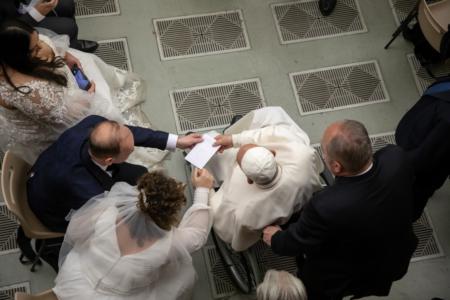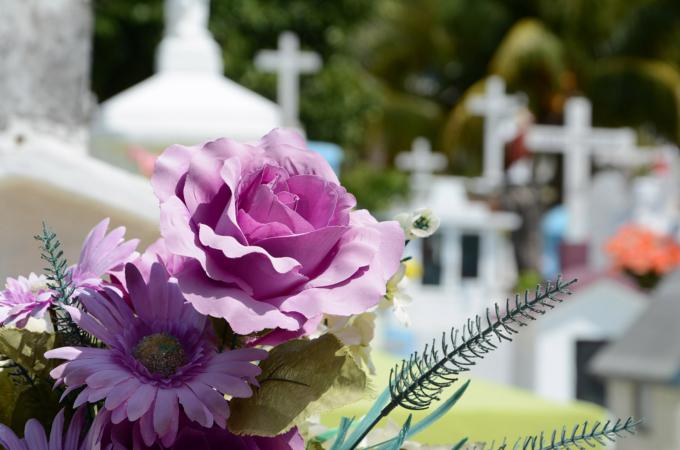Coping with the lack of funerals in the time of COVID-19
WALTHAM -- Frank Joyce's grandfather was a survivor of the 1918 flu epidemic. Joyce, who is the third generation in his family to run Joyce Funeral Home in Waltham, thinks that time bears one similarity to the current COVID-19 pandemic. People who lost loved ones then faced an "immediate need" to bury the dead, while the ceremonies that accompany death were put off until later.
This reversal is now happening again due to restrictions on public gatherings. Masses in the Archdiocese of Boston have been suspended since March 14, and gatherings of more than 10 people have been prohibited in Massachusetts, so wakes and funeral Masses cannot be held as they normally would. Instead, most bereaved Catholics have been holding graveside committal services with the intention of holding a memorial Mass at a later date.
"They have met the knowledge with an enormous amount of grace and dignity and acceptance, knowing that this is the environment that we're in and we all have to do what we can to help one another get through it," Joyce said in an April 14 interview.
He said every funeral home in the Boston area has handled people who died of COVID-19, and that there are many cases where that cause of death is suspected but not certain.
Joyce said he hopes people grieving at this time "find solace in knowing that there are many people that are with them spiritually, if not physically."
He said local parish priests he knows have been "very responsive" to people's needs.
"All of these guys have stepped up and done the best job that they know how under very difficult circumstances," Joyce said.
Father Adrian Milik, administrator of St. Jude Parish in Waltham, has presided over several graveside services in recent weeks. In cemeteries, more people can gather while maintaining several feet of distance.
He said he thinks these restrictions are most hard on the families of people who "took their faith seriously," because they want to arrange the funeral rites the deceased would have wanted.
"They all understand it and they all accept why it has to be this way, but that doesn't make it easy. They just want to be able to give this person this final farewell in the way they know they would have wanted," Father Milik said.
He said his usual practice would be to come up to the deceased's immediate family, shake their hands and ask if there is anything he can do for them. Now, during graveside committal ceremonies, he stays on the other side of the casket and does not cross that line, knowing that if he is an asymptomatic carrier of COVID-19, he should not risk spreading it.
"I understand it, I agree with it, it's a good idea, but this, I think, makes an already difficult situation even harder," Father Milik said.
He said he assures each bereaved family that he will say a private Mass for the deceased and pray for them.
However, he said, he recognizes that "the already difficult experience of losing someone that they loved is made more difficult because the way that they would normally process that grief and receive support from the community is not able to be done."
Father Milik said that memorial Masses held "when things go back to normal" will "hopefully be healing" for those who have lost loved ones during this time.
"I keep taking solace from the fact that Christ's Resurrection, which we are currently in the middle of celebrating, shows us that this isn't the end of these people's story, that we will be coming together again, and just as we're looking forward to being able to celebrate memorial Mass sometime in the near future, so we're also looking forward to new life with them after the Second Coming," Father Milik said.


















